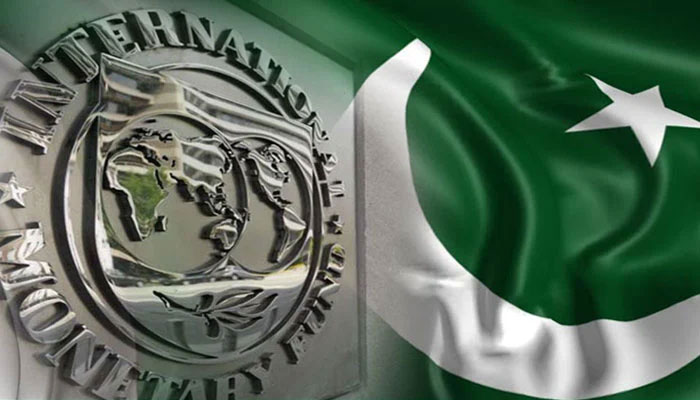Private sector’s predicament
The formal private sector is caught in a perfect storm
The formal private sector is caught in a perfect storm. It could reconcile to a one-off Super Tax to help secure the IMF programme and save the country from default. But it isn’t a one-off Super Tax as we now know.
Its shareholders, many of whom are small savers, pensioners and widows who invested in listed companies instead of real estate could also accept reduced dividends, but for how long? Investment, already low as % of GDP, could stay there because of the reduced net tax profit, but again for how long?
The industry is now denied spares and components because of SBP’s new requirements to obtain clearance for opening letters of credit. How long can it hang in before laying people off? Those like textiles that rely on gas, which is in short supply, will need to curtail production impacting badly needed exports. And now because of the higher policy rate, the cost of borrowing will rise, threatening loan impairment levels for banks. So in multiple ways, we are killing the goose (called formal private sector) that lays the golden egg!
What does a high policy rate in a cost-push inflationary environment achieve? Demand is already depressed due to high commodity costs and devaluation. Whose demand is a higher policy rate targeting to compress? Auto and consumer loans are restricted already by SBP, bank cash reserve requirements have been increased, 100% cash margin has been levied already on import letters of credit and now SBP’s clearance is required (and delayed) for importing spares and components. What’s left to compress? The Non-Food Non-Energy (NFNE) inflation rate is 11.5%. A policy rate of 15% is an overkill.
The Policy Rate does not directly affect those who don’t borrow from banks. That’s more than half our economy -- those in the informal sector and many SMEs. It affects the formal private sector and the government. The government will borrow at any cost as it refuses to curtail its fiscal deficit. The private sector will struggle. To be fair, SBP did a superb job with various stimuli to offset the impact of Covid. It then also recognised the need to differentiate between demand-pull and cost-push inflation. A 15% policy rate is not justified in the current cost-push inflation environment.
Ehsan Malik is CEO of Pakistan Business Council
-
 Trump Announces A Rise In Global Tariffs To 15% In Response To Court Ruling, As Trade Tensions Intensify
Trump Announces A Rise In Global Tariffs To 15% In Response To Court Ruling, As Trade Tensions Intensify -
 Chappell Roan Explains Fame's Effect On Mental Health: 'I Might Quit'
Chappell Roan Explains Fame's Effect On Mental Health: 'I Might Quit' -
 AI Processes Medical Data Faster Than Human Teams, Research Finds
AI Processes Medical Data Faster Than Human Teams, Research Finds -
 Sarah Ferguson’s Friend Exposes How She’s Been Since Andrew Mountbatten-Windsor’s Release
Sarah Ferguson’s Friend Exposes How She’s Been Since Andrew Mountbatten-Windsor’s Release -
 Jelly Roll Explains Living With 'severe Depression'
Jelly Roll Explains Living With 'severe Depression' -
 Charli XCX Applauds Dave Grohl’s 'abstract' Spin On Viral ‘Apple’ Dance
Charli XCX Applauds Dave Grohl’s 'abstract' Spin On Viral ‘Apple’ Dance -
 Anna Sawai Opens Up On Portraying Yoko Ono In Beatles Film Series
Anna Sawai Opens Up On Portraying Yoko Ono In Beatles Film Series -
 Eric Dane's Wife Rebecca Gayheart Shares Family Memories Of Late Actor After ALS Death
Eric Dane's Wife Rebecca Gayheart Shares Family Memories Of Late Actor After ALS Death -
 Palace Wants To ‘draw A Line’ Under Andrew Issue: ‘Tried And Convicted’
Palace Wants To ‘draw A Line’ Under Andrew Issue: ‘Tried And Convicted’ -
 Eric Dane's Girlfriend Janell Shirtcliff Pays Him Emotional Tribute After ALS Death
Eric Dane's Girlfriend Janell Shirtcliff Pays Him Emotional Tribute After ALS Death -
 King Charles Faces ‘stuff Of The Nightmares’ Over Jarring Issue
King Charles Faces ‘stuff Of The Nightmares’ Over Jarring Issue -
 Sarah Ferguson Has ‘no Remorse’ Over Jeffrey Epstein Friendship
Sarah Ferguson Has ‘no Remorse’ Over Jeffrey Epstein Friendship -
 A$AP Rocky Throws Rihanna Surprise Birthday Dinner On Turning 38
A$AP Rocky Throws Rihanna Surprise Birthday Dinner On Turning 38 -
 Andrew Jokes In Hold As BAFTA Welcomes Prince William
Andrew Jokes In Hold As BAFTA Welcomes Prince William -
 Sam Levinson Donates $27K To Eric Dane Family Fund After Actor’s Death
Sam Levinson Donates $27K To Eric Dane Family Fund After Actor’s Death -
 Savannah Guthrie Mother Case: Police Block Activist Mom Group Efforts To Search For Missing Nancy Over Permission Row
Savannah Guthrie Mother Case: Police Block Activist Mom Group Efforts To Search For Missing Nancy Over Permission Row




